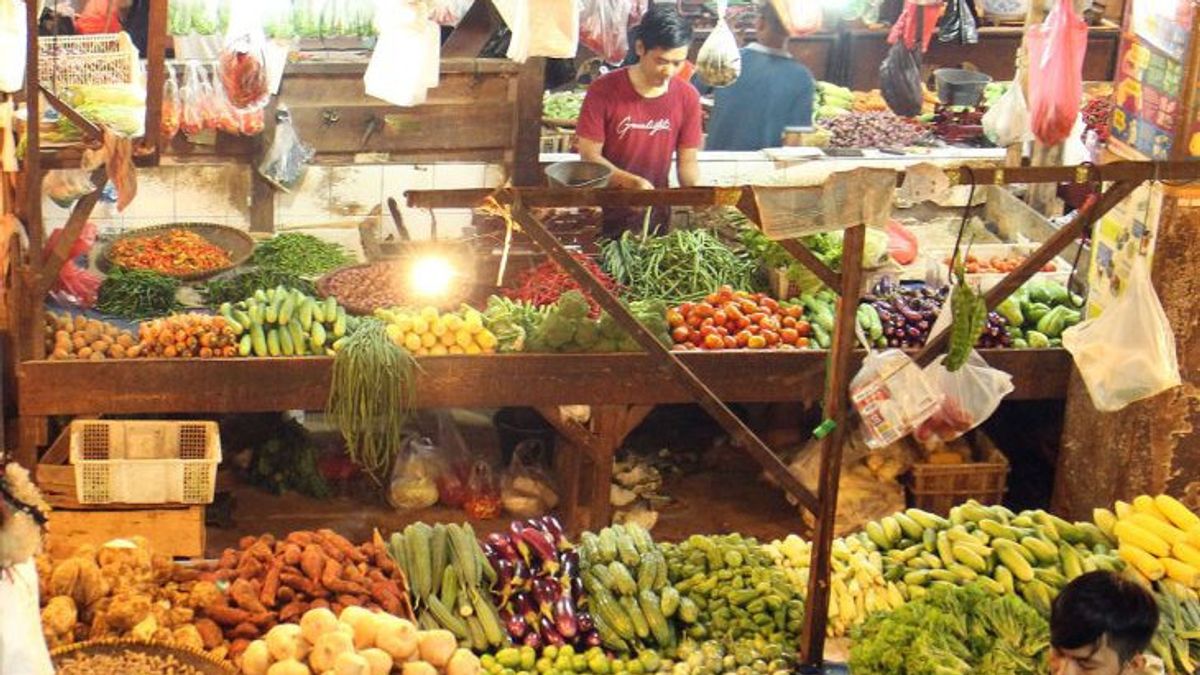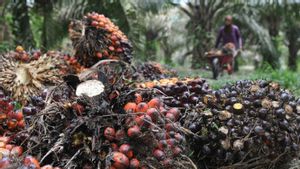JAKARTA - Research results from the Center for Indonesian Policy Studies (CIPS) state that fluctuations in food prices are one of the factors that influence the prevalence of stunting rates in Indonesia.
"Fluctuations in food prices affect the food consumption of some Indonesian people, especially those with low incomes. Therefore, maintaining food affordability is very important," said CIPS Head of Agricultural Research Aditya Alta in an online media discussion quoted from Antara, Thursday 26 January.
The latest CIPS research entitled "Policy Barriers to a Healthier Diet: The Case of Trade and Agriculture" shows that food affordability determines individual nutritional status.
The March 2021 National Socioeconomic Survey (Susenas) shows that the average cost of balanced nutritious food in Indonesia is IDR 22,126 per day per person or IDR 663,791 per month per person. Based on the cost of eating in 90 cities in 2021, around 68 percent or 183.7 million Indonesians cannot afford this amount.
Data from the World Food Program (WFP) state that food prices such as rice in Indonesia can be 50-70 percent more expensive than prices in neighboring countries. The CIPS Food Monitor also stated that sugar, rice, and soybean prices were respectively 55.68 percent, 38.36 percent, and 15.94 percent more expensive than some international prices for the whole of 2021.
Aditya said the COVID-19 pandemic has added to the burden on low-income people. Reduced or loss of income makes nutritional adequacy in food consumption increasingly not a priority. As a result, there is a tendency to choose foods with high carbohydrate content that are filling but have minimal nutritional value.
The number of people who cannot afford healthy food in the world is estimated to have increased by 267.6 million after the COVID-19 pandemic. Stunting rates are expected to increase for the first time in two decades, with an estimated 3.6 million more.
Just like other countries, food prices in Indonesia have risen sharply along with the loss of jobs due to the COVID-19 pandemic. This affects the ability of millions of people to buy nutritious food, forcing them to look for cheaper and less nutritious foods or to skip meals altogether.
The agricultural sector is currently facing production challenges caused by climate change, inadequate supporting infrastructure, lack of use of technology, reduced agricultural land, reduced number of farmers, and low productivity.
"These challenges should be followed by food trade policies that are oriented towards consumer interests, through simplification of import regulations so as to ensure people's access to affordable healthy and nutritious food," said Aditya.
SEE ALSO:
The CIPS study recommended that food affordability targets should be part of the National Action Plan to Accelerate the Reduction of Stunting in Indonesia (Ran Pasti) and the National Strategy to Accelerate the Reduction of Stunting.
The Ministry of Trade should also be included in the plan to review trade policies and instruments such as permits and import/export quotas, including evaluating commodity balance mechanisms and removing unnecessary barriers.
In addition, as ministries and agencies responsible for food security, the Ministry of Agriculture, Ministry of Trade and the National Food Agency (Bapanas) should become members of the National Team for the Acceleration of Stunting Reduction to align their policies with the goal of reducing stunting prevalence.
The English, Chinese, Japanese, Arabic, and French versions are automatically generated by the AI. So there may still be inaccuracies in translating, please always see Indonesian as our main language. (system supported by DigitalSiber.id)

















